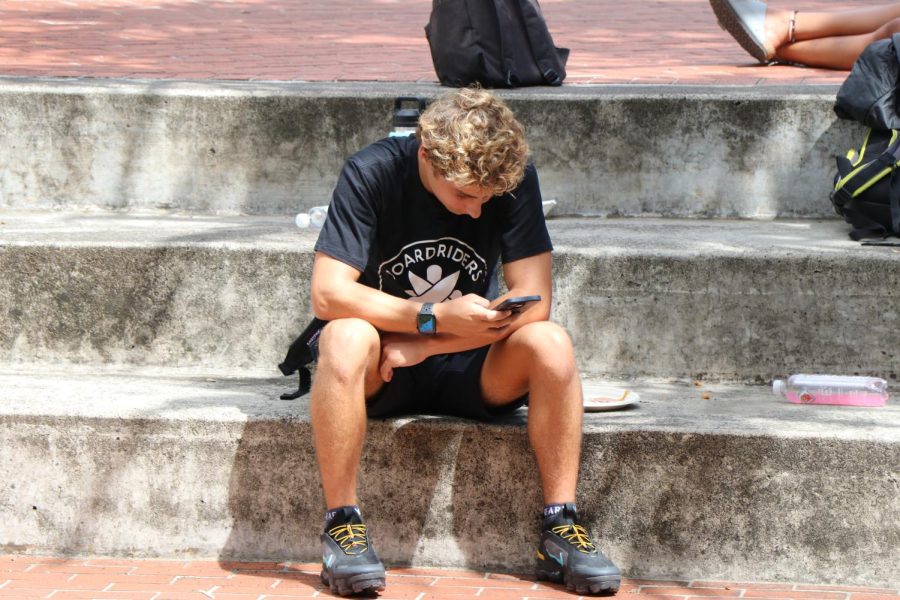A social media app that spreads positivity by – wait for it – giving out compliments.
It’s an idea that seemed impossible in the age of cyberbullying and online trolls. There are countless articles and research studies on social media and its damage to the developing mind. Many teenagers spend hours on social media until they are left drained, insecure, and alone.
If the negative, traditional social media were to do a 180, the end result would be Gas.
Gas, a social media app released in August 2022, has slowly made its way up to the title of the No. 1 social networking app on Apple’s App Store. On its journey, it surpassed other popular social media apps such as Instagram and Tiktok. To “gas someone up” is slang meaning to praise or uplift someone. This reflects the app’s purpose: to compliment other users anonymously.
How Gas Works
After downloading the free app, users are asked to share their location and phone number to find their high school’s Gas community. Afterward, users are asked to select their gender and grade level in their selected high school. Users can then create their friends list by adding people from their grade level or from their contacts.
Every hour, Gas presents twelve poll questions that range from compliments like “would look good with a mustache” to silly confessions such as “too nervous to ask them out.” The options for these questions are all names of classmates or friends, and users can anonymously vote for the person who fits the description the most. The premade superlatives are positive and funny, urging users to compliment each other at the low-stake cost of revealing just their gender and grade level. When selected by a friend, the user receives a “flame” and a notification from the app.
Gas at Punahou
So far, Gas has been met with success at Punahou School. As of November 2022, over 800 Punahou students are enrolled in the Punahou School Gas community. “I think it’s nice because people say such nice things on there,” says Metta Pule ‘26. “There’s a lot of positive questions and [you get to] know what people think about you,” Lilah Darchuck ‘26 adds.
Despite the positive responses, Gas has been experiencing a drastic decrease in users after its initial spike in popularity. Recent accusations of the app being used for sex trafficking have led many users to delete the app in fear, although this has been proven to be a hoax. Sources such as The Washington Post have stated that there have been no reports of Gas being linked to any form of trafficking. Gas does not save nor store users’ locations; locations are only used prior to creating an account to locate nearby high schools for possible friends and contacts. It also lacks the one-on-one chatting feature predators typically use to approach and contact victims.
Along with the myths surrounding the app, its repetitive nature is also contributing to its declining popularity. “It just gets boring and repetitive,” marks Darchuck ‘26. “I think that it’s boring [now] because it trended for, like, two days and I don’t even like it anymore,” Pule ‘26 joins, “It’s the same questions, and I don’t need to hear the same thing twice.”
Why Teens are Choosing Positive Social Media
Gas may be dying out, but positive social media seems to be growing. Teenagers are tired of the negative impacts of social media: feeling inadequate, experiencing FOMO, and comparing themselves to others. Perhaps that is why teenagers are hooked by positive social media such as BeReal and now Gas. Gas is challenging the negatives of social media by creating a space to compliment others under the safety of anonymity. It allows teenagers to open up to their classmates, to overcome the uncomfortableness of giving compliments, and reestablish the true purpose of social media. After all, who wouldn’t like to be voted “Never Mid?”

